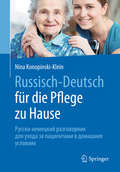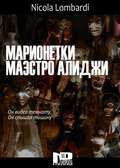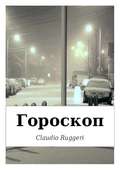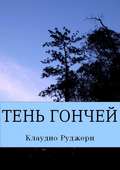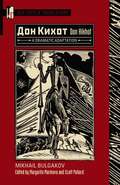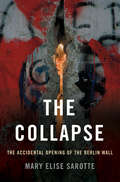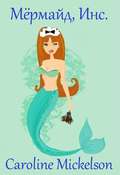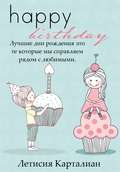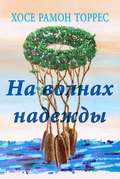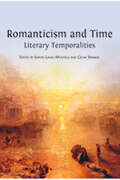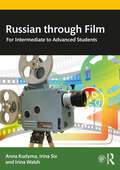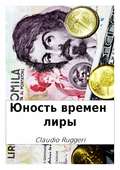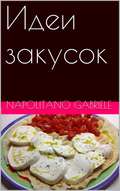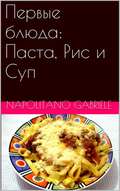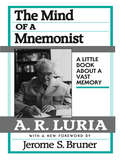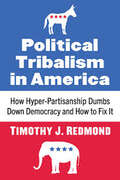- Table View
- List View
Radioactive Sources: Applications and Alternative Technologies: Russian Version
by Division on Earth and Life Studies Nuclear and Radiation Studies Board National Academies of Sciences, Engineering, and Medicine Committee on Radioactive Sources: Applications and Alternative TechnologiesRadioactive Sources: Applications and Alternative Technologies assesses the status of medical, research, sterilization, and other commercial applications of radioactive sources and alternative (nonradioisotopic) technologies in the United States and internationally. Focusing on Category 1, 2, and 3 sources, this report reviews the current state of these sources by application and reviews the current state of existing technologies on the market or under development that are or could be used to replace radioisotopic technologies in those applications. Radioactive Sources will support existing and future activities under the National Nuclear Security Administration Office of Radiological Security program to reduce the use of high-risk radiological materials in commercial applications.
Russisch - Deutsch für die Pflege zu Hause
by Nina Konopinski-Klein Dagmar Seitz Joanna Konopinski Karén Khachatryan Daniel-BeckSprachführer für den Pflegealltag Russisch-DeutschDieses übersichtliche Wörterbuch ist ein unverzichtbarer Helfer im Gespräch. Begriffe und einfache Sätze aus dem Alltag werden in beiden Sprachen aufgeführt und erleichtern die Verständigung im Alltag. Einfache Dialoge zu Alltagsthemen wie z.B. Wohlbefinden, Krankheit, Arztbesuch, Haushalt, und Ernährung. Aber auch wichtige Fachbegriffe werden elräutert. Zahlreiche Abbildungen unterstützen das Gespräch und hilfreiche Vokabellisten erleichtern das Lernen neuer Wörter.Empfehlenswert für russisch sprechende Pflegekräfte und Haushaltshilfen, die in Deutschland arbeiten; aber auch Senioren und Angehörige finden darin Hilfen zum Gespräch. Рассмативаемый разговорник- незаменимый помощник в общении. В текстах на русском и немецком языках представлены предложения, необходимые для облегчения повседневного контакта, а также специальные фразы, употребляемые в процессе ухода за пациентом.Представлены часто употреблаемые простые диалоги, необходимые при посещении врача, банка, магазинов и т.д.Диалоги снабжены иллюстрациями.Имеется большой запас слов, необходимых санитарам для работы в немецкой среде, для общения с пожилыми пациентами и членами их семей.
Марионетки Маэстро Алиджи
by Nicola Lombardi Elena ChemoginaThe second time I upload it.Elena ChemoginaТеатр марионеток. Древний скрытый ужас вовлечёт маленького Тобиа в бесконечный кошмар.Серия произведений Innesti от Nero Press Edizioni окрашивается в ещё более красно-кровавый цвет в новом пугающем рассказе Николы Ломбарди о марионетках Маэстро Алиджи. Это история, рассказывающая о самых простых ощущениях и сокровенных страхах ребенка.Маленький Тобиа с нетерпением ждёт спектакля поразительного Маэстро Алиджи и его кукол. Когда ему выпадает возможность попасть в фургон кукловода и прикоснуться к великолепным куклам, мальчик не колеблясь принимает предложение, тем более, что приглашение исходит от Кати, девочки, к которой его тянет с совершенно необъяснимой силой. Вход в этот мир станет прелюдией к кошмару без конца.
Гороскоп. Пятое Расследование Комиссара Джермано
by Claudio Ruggeri Nadiya TertletskaСерия необъяснимых убийств происходит в провинции Рима, расследованием будет назначен заниматься Винсент Джермано, комиссар должен будет разгадать загадку.
Тень Гончей (Расследование Комиссара Джермано)
by Claudio Ruggeri Nadiya TertletskaТело молодой женщины найдено в лесу, с первых улик как мотив и имя убийцы представляется очевидным для всех, кроме как для Винсента Джермано, комиссар решит провести расследование.
Translating Russian Literature in the Global Context
by Muireann Maguire Cathy McAteerTranslating Russian Literature in the Global Context examines the translation and reception of Russian literature as a world-wide process. This volume aims to provoke new debate about the continued currency of Russian literature as symbolic capital for international readers, in particular for nations seeking to create or consolidate cultural and political leverage in the so-called ‘World Republic of Letters’. It also seeks to examine and contrast the mechanisms of the translation and uses of Russian literature across the globe. This collection presents academic essays, grouped according to geographical location, by thirty-seven international scholars. Collectively, their expertise encompasses the global reception of Russian literature in Europe, the Former Soviet Republics, Africa, the Americas, and Asia. Their scholarship concentrates on two fundamental research areas: firstly, constructing a historical survey of the translation, publication, distribution and reception of Russian literature, or of one or more specific Russophone authors, in a given nation, language, or region; and secondly, outlining a socio-cultural microhistory of how a specific, highly influential local writer, genre, or literary group within the target culture has translated, transmitted, or adapted aspects of Russian literature in their own literary production. Each section is prefaced with a short essay by the co-editors, surveying the history of the reception of Russian literature in the given region. Considered as a whole, these chapters offer a wholly new overview of the extent and intercultural penetration of Russian and Soviet literary soft power during the twentieth and twenty-first centuries. This volume will open up Slavonic Translation Studies for the general reader, the student of Comparative Literature, and the academic scholar alike.
Дон Кихот [Don Kikhot]: A Dramatic Adaptation (Texts and Translations #29)
by Mikhail BulgakovWhen Soviet censors approved Mikhail Bulgakov's ??? ?????, a stage adaptation of Don Quixote, they were unaware that they were sanctioning a subtle but powerful criticism of Stalinist rule. The author, whose novel ?????? ? ????????? would eventually bring him world renown, achieved this sleight of hand through a deft interpretation of Cervantes's knight. Bulgakov's Don Quixote fits comfortably into the nineteenth-century Russian tradition of idealistic, troubled intellectuals, but Quixote's quest becomes an allegory of the artist under the strictures of Stalin's regime. Bulgakov did not live to see the play performed: it went into production in 1940, only months after his death.The volume's introduction provides background for Bulgakov's adaptation and compares Bulgakov with Cervantes and the twentieth-century Russian work with the seventeenth-century Spanish work.
The Collapse: The Accidental Opening of the Berlin Wall
by Mary Elise SarotteThe Berlin Wall was erected in 1961 to end all traffic between the city’s two halves: the democratic west and the communist east. The iconic symbol of a divided Europe, the Wall became a focus of western political pressure on East Germany; as Ronald Reagan’s famously said in a 1987 speech in Berlin, "Mr. Gorbachev, tear down this wall!” But as award-winning historian Mary Sarotte shows in [Title TK] , the opening of the Wall on November 9, 1989 was not, as is commonly believed, the East German government’s deliberate concession to outside influence. It was an accident. A carelessly worded memo written by mid-level bureaucrats, a bumbling press conference given by an inept member of the East German Politburo, the negligence of government leaders, the bravery of ordinary people in East and West Berlin--these combined to bring about the end of nearly forty years of oppression, fear, and enmity in divided Berlin. When the news broke, Washington and Moscow could only stand by and watch as Tom Brokaw and other journalists narrated the televised broadcast of this critical moment in the thawing of the cold war. Sarotte opens her story in the months leading up to that fateful day. Following East German dissidents, she shows how their efforts coalesced around opposition to the regime’s restrictions on foreign travel. The city of Leipzig, close to the border with Czechoslovakia, became a hothouse of activism, and protests there quickly grew into massive demonstrations. The East German Politburo hoped to limit its citizens’ knowledge of these marches, but two daring dissidents, East Berliners Aram Radomski and Siegbert Schefke, managed to evade the Stasi and film the largest of them from a church tower. They then smuggled their tape to West Germany; broadcast in both nations, the footage galvanized activists across East Germany, and precipitated the stunning developments on November 9. Facing mounting pressure from its own citizens, the East German Politburo planned to put off enacting any meaningful change to its travel policy by issuing a deceptive ruling that would appear to offer more freedom, but which in fact would allow the state to maintain strict control over its citizen’s movements. But the bureaucrats tasked with preparing the "new” regulations misunderstood their task, and instead drafted a declaration that said East Germans could freely leave the country. This declaration ended up in the hands of regime spokesman Günter Schabowski, who announced the rules at a press conference without understanding their import. Stunned reporters were soon broadcasting the news around the world. Crowds of East Germans began streaming to the Wall, prompting a showdown with border guards, who received no support or direction from East German leadership as the throngs multiplied. By 11:30, Harald Jäger, a second-tier passport control officer, had had enough and finally opened the wall to the mob gathering outside his gate. Even though East German forces successfully regained control by the morning, it was too late--for the wall, for the regime, and for Communism in Eastern Europe. Drawing on evidence from archives in multiple countries and languages, along with dozens of interviews with key actors, including Harald Jäger, [Title TK] is the definitive account of the event that brought down the East German Politburo and came to represent the final collapse of the Cold War order.
Мёрмайд, Инс. (Романтическая комедия)
by Marina De Puig Smirnova Caroline MickelsonКатегорически протестуя против коммерческого китобойного промысла, Миранда с радостью соглашается поменять русалочий хвост на человеческие ноги, когда ей представляется возможность поработать в качестве горничной в доме человека, ответственного за связи с общественностью, работающего на важную японскую китобойную фирму. Миранда скоро узнает, что ей намного больше нравится педикюр и стильные бикини, чем чешуя русалочьего хвоста, и что она превращается в настоящее стихийное бедствие, когда дело доходит до домашних дел. Но в человеческом мире много того, чего она не знает и не понимает. Почему при виде Джастина Локхида, её привлекательного босса, её сердце бьётся быстрее и её коленки слабеют? Как она поступит, когда ей придётся выбирать между выполнением возложенной на неё миссии и разрушением карьеры Локхида?
Happy Bithday
by Letícia Kartalian Alexandra GolovinskayaЭти двое влюблены, известны и очень заняты на работе, но существуют дни которые они стараются провести вместе... Их дни рождения это одни из них. С мужской и женской точек зрения, Happy Birthday говорит об интенсивных отношениях двух людей друг с другом, о дружбе, о работе, и особенно о любви.
На волнах надежды
by Adelaida Arias Аделаида Ариас Arias José Ramón Torres"Из этой страны надо уезжать!" Анхель представить не мог, что окажется в таком положении: полуголодный, измотанный, неуверенный, что проживет еще один день. Но будущее близких бесценно. Повесть "На волнах надежды" пропитана ромом и кубинскими сигарами, сексом и наркотиками, домино и болеро, тем, чем жила Куба между тремя волнами эмиграции кубинцев в Соединенные Штаты Америки. Это просто книга о Кубе, которая не принимает сторону правых или левых, а просто рассказывает о людях, стесненных обстоятельствами. Это дань нынешним мигрантам, их надеждам и их жертвам.
An Outline of Romanticism in the West
by John Claiborne IsbellNavigating the landscape of Romantic literature and art across Europe and the Americas, An Outline of Romanticism in the West invites readers to embark upon a literary journey.
Rhoda ‘Comrade Kadalie, You Are Out of Order!’ A biography
by Joel PollakThis authorized biography was made possible through the gracious help of my mother-in-law, Rhoda Kadalie, who provided generous access to her files, letters, photographs, and extensive library of documents. She made time to sit with me for several hours of interviews from September through October 2021, to answer questions as they arose, and to offer innumerable clarifications. Rhoda also reviewed the first draft of the biography in December 2021, making corrections and additions, and contributing some of her own original vignettes, never before published.
Russian through Film: For Intermediate to Advanced Students
by Anna Kudyma Irina Six Irina WalshRussian through Film: For Intermediate to Advanced Students is a multi-level textbook for learners of Russian that targets contemporary films in Russian. These films will deepen learners’ understanding of today’s lifestyles in the post-Soviet space as well as add to their understanding of Soviet and Russian history and culture. They represent a variety of genres ranging from romantic comedy to art-house cinema. These films present standard Russian and are appropriate for various audiences. Russian through Film builds on students’ listening, reading, speaking, and writing skills while also expanding their cultural literacy. The textbook aims at improving learners’ ability to analyze films by carefully investigating the films’ plot, structure, conflicts, and main characters. Through task-based, inquiry-based, and project-based activities, the textbook focuses on developing learners’ skills in various modes of discourse (narration, description, comparison, explanation, and summary). The textbook can serve as a primary text for a course on contemporary Russian films or a supplementary textbook in intermediate and advanced level classes. Separate chapters may be included in thematic classes on youth culture, Soviet history, sports, geography, folklore, contemporary social issues, and the arts.
Юность Времен Лиры
by Claudio Ruggeri Imran NazirovВстреча двух друзей в один из летних дней, в которой более молодой будет слушать анекдоты и рассказы другого о мире, который исчез всего лишь вчера, но больше уже никогда не сможет существовать, во времена которого часто можно было услышать фразу «Я без единой лиры...»
Идеи закусок
by Gabriele NapolitanoТрадиционные итальянские закуски, начните свой обед или ужин поистине оригинально.
Первые блюда: Паста, Рис и Суп.
by Gabriele NapolitanoМножество рецептов одной итальянской мамы, чтобы приготовить по-настоящему вкусные, быстрые и изысканные первые блюда.
что у нас сегодня на десерт?
by Gabriele NapolitanoНе знаешь, что приготовить сегодня на десерт? Эта книга создана специально для тебя. Она содержит более тридцати рецептов, взятых из секретной записной книжки одной итальянской мамы.
The Mind of a Mnemonist: A Little Book about a Vast Memory, With a New Foreword by Jerome S. Bruner
by A. R. LuriaThis study explores the inner world of a rare human phenomenon—a man who was endowed with virtually limitless powers of memory. From his intimate knowledge of S., the mnemonist, gained from conversations and testing over a period of almost thirty years, A. R. Luria is able to reveal in rich detail not only the obvious strengths of S.’s astonishing memory but also his surprising weaknesses: his crippling inability to forget, his pattern of reacting passively to life, and his uniquely handicapped personality.

